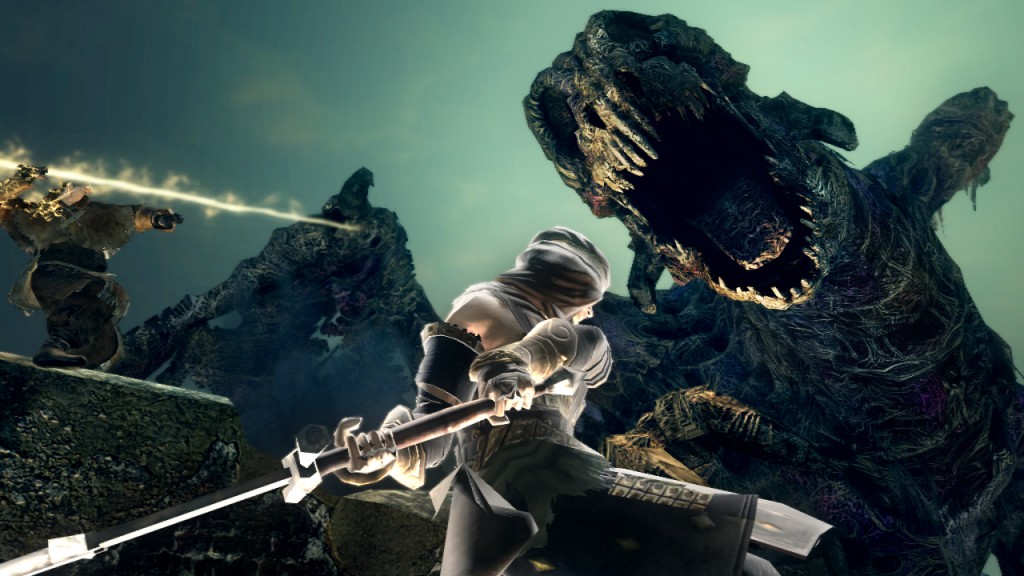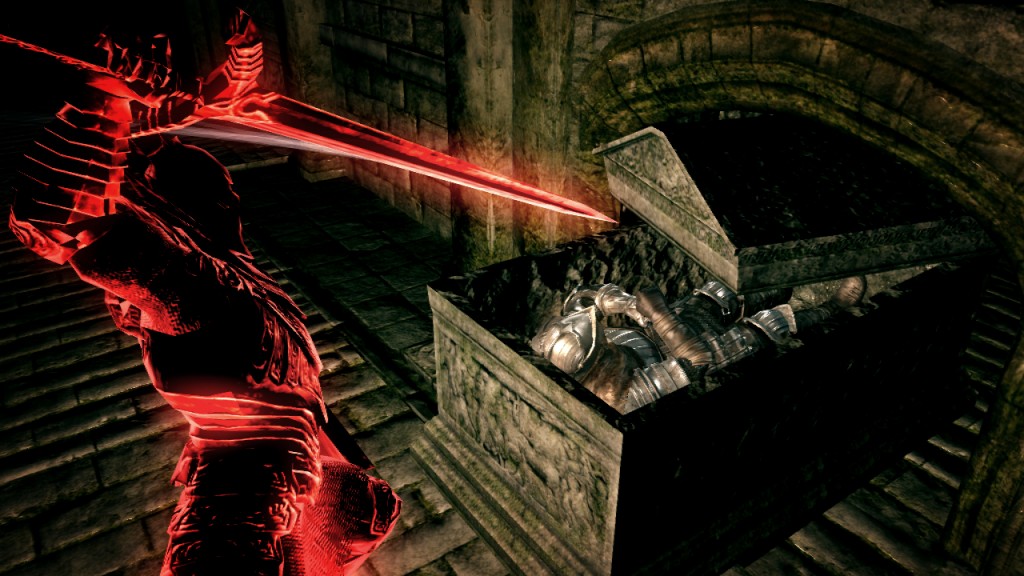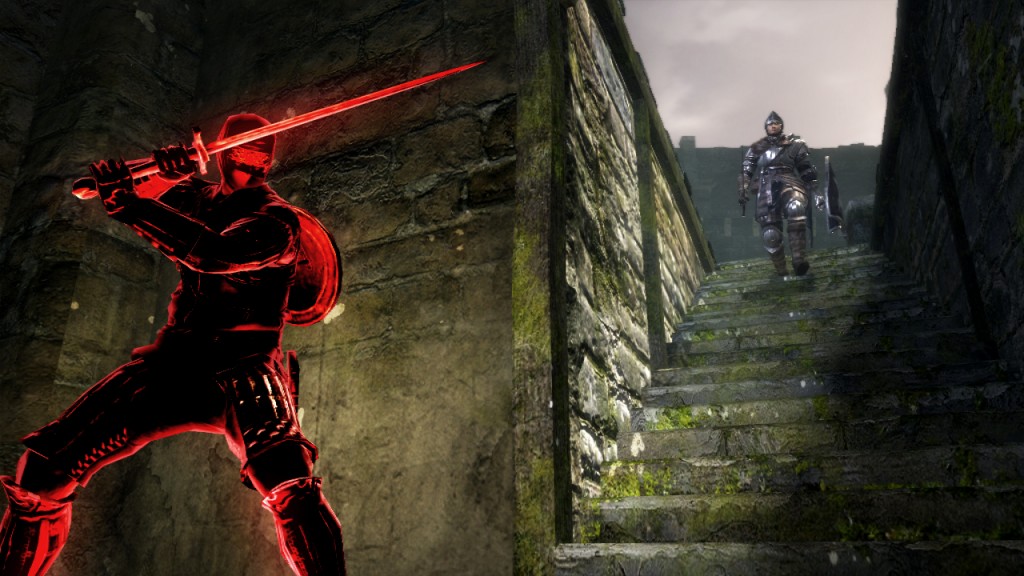Dark Souls: As It Once Was, So Shall It Be
They’re not ready for this…or are they?
As someone whose gaming career began in the days of the 2600, I have borne witness to a shift in the arc of game design. Now, most everyone will agree games are ultimately about entertainment. What changed was the root of that entertainment. Games now tend towards providing a bit of escapism for the player without them having to put much effort in. Think of it as an interactive movie where the obstacle, be it a giant monster or arcane puzzle, is merely a plot device moving you on to the next scene. Those who wish for a greater challenge have the option to increase the difficulty, but rare now is the game where the difficulty simply “Is”. Dark Souls, like its spiritual predecessor Demons Souls, is such a game.
Some of you already get it, others of you require a frame of reference (due to my advanced age, no doubt) to really understand what this means. The entertainment value in many games of the 8 and 16 bit eras was drawn from the challenge they posed. Battletoads, Ninja Gaiden, Zillion, TMNT, Ghouls and Ghosts, Shinobi, and R-Type come to mind. These were games made to be played and, maybe, conquered. The semi-passive approach would provide nothing but the “game over” screen as these titles gave nothing for free. It was not expected that everyone could beat these games. Indeed, where some games were concerned the question was not “did you beat it?” as much as “how far did you get?”. Eventually this gave rise to the question of “why should I buy it if I won’t be able to beat it?”. Gamers became frustrated with games that were too hard to beat or finish, and decided to spend their money on less aggravating entertainment. To continue opening the gaming market to a wider audience, developers and publishers have focused on making games enjoyable to play but leaving some of the more challenging sections as optional for the more hardcore gamer. Thus, a new gaming era was born.
When Shinobi was released for the Playstation 2 in 2002, gamers received a new option. The option to be pummeled. This was a game that did not give a damn about entertaining you. This game dared you to beat it, and in the process beat you severely and often. It was a merciless and unforgiving wayback machine whose sole purpose was to quickly kill you dead as punishment for even the smallest transgression. This game supplied the tools to succeed and left the rest up to you. Continues? Sure you got continues! It let you continue from the beginning of the stage! Now stop whining and just be happy it didn’t “let” you continue from the beginning of the game instead.
The punishing difficulty of Demons Souls, like Shinobi before it, shut down a lot of people. They climbed into the ring expecting a few light jabs and were unprepared for the right hook from a game using plaster hand wraps. And that was just the offline aspect. Demons Souls introduced players to a feature which allowed other players to randomly invade for the express purpose of making an already brutal game even more difficult. The fact that Dark Souls has been publicly and frequently labeled as more difficult than its predecessor means that a whole bunch of folks are in for a surprise come October. The funny thing is that the surprise isn’t necessarily going to be an unwelcome one for some people. Now, we often see games offering to dial back the difficulty when it senses a player is overmatched. FromSoftware Inc. is apparently going the other way by turning the dial to one notch past “Screw You” and gluing it in place, while smiling. And I think players will be grinning back…once they get used to the idea of failure as progress.
I think they’re actually excited to get killed. If boards around the net are to be believed, the Xbox player base is eager to take up the gauntlet that FromSoftware is throwing down. A finely tuned action-RPG with a distinctly old-school philosophy regarding difficulty levels? Seamless free-roam world design encouraging exploration? Game features implemented for the express purpose of griefing? The response so far has been an emphatic “Yes, please”. The masses had limited exposure to the concept and philosophy behind Demons Souls due to it being a PS3 exclusive, and an under-the-radar title even there, but word of mouth has built immense anticipation for its spiritual successor. The multiplayer features alone, when exposed to the fertile soil of Xbox Live, may well be worth the price of admission. Let’s face it; will it be that hard to find someone on Xbox Live willing to engage in developer-sanctioned griefing?
Demons Souls proved that gamers expect to be entertained but, provided a fair playing field, aren’t afraid to fight for their accomplishments. With Dark Souls the statement looks to be made again at a much higher volume, and how it performs may well affect how other developers look at handling difficulty in future titles. A good game challenges a player and provides an acute sense of accomplishment when those challenges are overcome. Facerolling your way to victory is the antithesis of that ideal and endemic of the focus on entertainment with minimal effort. The commercial success of Dark Souls would hopefully slow that trend and show developers that players want to be pushed. They want to be challenged. They want to get killed, then come right back for more.
And come October, they will.
About This Post


